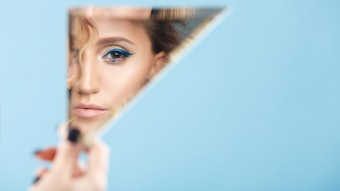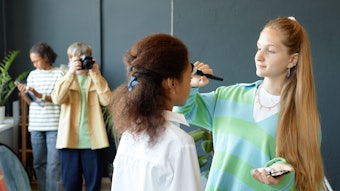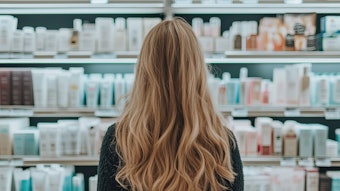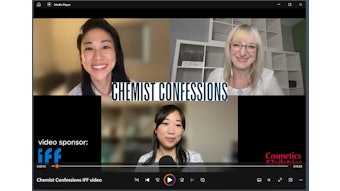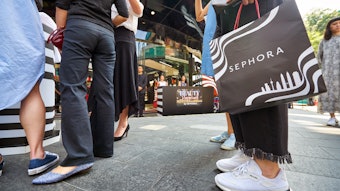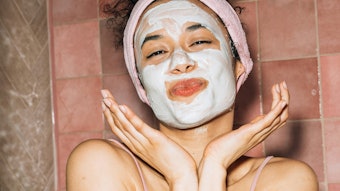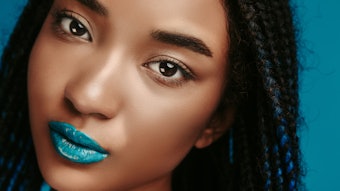
In the Western world, protecting the skin against ultraviolet (UV) light damage has been a mainstream concern for more than a decade. UV radiation is part of the electromagnetic radiation spectrum emanating from the sun and can be divided into short wave UVC (200-280 nm), medium wave UVB (280-320 nm) and long wave UVA (320-400 nm). As solar radiation enters the atmosphere, its effects are modified by the ozone layer and air pollution, geographic latitude, elevation, season, time of the day, cloudiness, etc.
The tanned look is desirable in Caucasian populations; to many it is a cultural "ideal” and a sign of good health or wealth and beauty.1 However, the damage it causes is real. And experts now understand that motivation to reduce sun tanning is better approached from a vanity angle; i.e., preventing premature signs of aging, rather than preventing melanoma.
Not only does sun exposure play a role in skin damage, but also genetics. U.S. research into a UV radiation resistance-associated gene has revealed processes of repair occurring after UV damage. People who have a mutated or low level of the UV-resistant gene may be at higher risk of skin cancer if they sunbathe frequently. Researchers believe that in the future, the UV-resistant gene may serve as a biomarker to personalize skin cancer prevention.2
Advances in sun care research have deepened our understanding of the biology of photoaging-induced skin damage. Sun care manufacturers have claimed that safe and efficacious sun care products are not difficult to formulate, and they have been developing UVB and UVA protection for decades. What presents a challenge is compliance with heavy regulations worldwide, and sunscreen ingredients having negative connotations in the media.
Although companies like Coty have developed infrared protection, addressing the issue of free radical formation, the first step that accelerates aging, is crucial. Further, some academic groups are skeptical about the positive effects of modern sunscreens. They point out that while these molecules might be beneficial in providing complete protection for the skin, they might also have side effects, e.g., cell toxicity.3
Communicating about research to consumers is of great importance. Here, I asked clients in the clinic—women ages 35-70 who regularly invest in skin care—to answer questions around UV, visible light and infrared protection. These answers give a limited snapshot of British consumers' understanding of, and willingness to adopt, sun protection in the North of the U.K.
Is the rising trend of not just UV, but infrared (and even visible light) protection impacting you at all?
1. It's not impacting me at all, I haven't heard of it.
2. I am more inclined now to wear a tinted moisturizer with an SPF 30.
3. I am very aware of the dangers and always wear extra protection on a sunny day, whether at home or abroad. On non-sunny days, I rely on the protection within my makeup (unless I am going to be outside all day).
4. Probably not. I am aware of the need to protect my skin and I don't feel anything has made me change or increase the need.
5. I’ve read a bit about infrared in relation to using computers and other ‘screens.’ I always assumed living in the North of the U.K. meant the sun has less impact on my skin because it wasn’t as strong as in the South of the U.K., but I now know this is probably false.
In the future, the UV-resistant gene may serve as a biomarker to personalize skin cancer prevention.2
Are you aware of these claims? Are you looking them up when purchasing skin care? Do you consider them to be important?
1. I think I should, now.
2. I am aware, although I don’t wear as much protection as I should.
3. I am aware and do consider UV (etc.) protection to be extremely important defense against anti-aging and sun damage.
4. No.
5. No.
Do you think protection (sun, UV or infrared) works?
1. Sun protection definitely works and I believe it is important to prevent sun damage to the skin, especially pigmentation and premature aging.
2. I think it does work to protect the skin, but I am not sure how good it is to wear all those chemicals all the time.
3. I have found that wearing SPF 50 during the summer works for me, having been for a fairly long period in Europe.
4. Probably, but it depends on the user’s application.
5. It is difficult to say whether protection actually works. Using sun protection does stop the skin burning, if it’s used properly, but whether it has long-term benefits, I don’t know. My skin was probably damaged by the sun years ago, prior to sun protection creams being available
Would you rather see claims on protection or repair?
1. Both would be great.
2. I prefer products that claim to do one thing. To me, repair needs to go into the skin whilst protection needs to stay on the surface.
3. Protection is most important and I would like to see more on this. Repairing [relates to] the damage that has already been done.
4. I think we have all damaged our skin, so repair is just as important as protection.
5. I look for products that will repair the damage that has already happened to my skin.
Do you—or would you in future—use modern devices like phone apps to time your exposure?
1. No, I don't spend much time in the direct sun. I don't want any more apps or devices.
2. No, I don’t like to be so prescriptive about things.
3. I would probably not use a phone app. I just monitor my own time, but the younger generation probably would.
4. No.
5. I would not use an app to time exposure.
How would you define yourself as a 'skin care consumer,' compared to your peers?
1. I know a bit, but realize most people know very little indeed. There is a lot I don't know, even about my own skin. I'm trying to learn.
2. I do spend a lot on skin care and am interested in skin care.
3. I think within my own circle of friends/family, they are becoming much more aware of the importance of skin care and especially organic/natural brands. They buy from an emotional standpoint, based on advertising claims. Many, on the other hand, don't have a particular routine or brand awareness/loyalty [to sway them] one way and another by claims, not really knowing what they need. I am much more skeptical of claims, checking the ingredients, possibly deciding to try and then judging the effectiveness.
4. I think I am probably more interested in skin care than most of my friends. I am certainly far more prepared to look after my skin and buy quality products to do so.
5. I use more products than most of my friends. Many do not see the need to try to protect/improve their skin. They feel that in their 60s and 70s, it is too late.
This short poll among my clients demonstrates that, although most people use sun protection in their daily skin care, they might not apply enough even though they think they are protecting themselves. These British women are unprepared to monitor their sun exposure through an app (whilst younger generations may use it to time sun exposure); they also feel they no longer spend time in the sun. Buying the best affordable skin care, they are aware of the years it took them to realize they need to protect their skin. Clarity in advertising and communicating new research findings are therefore imperative for the industry to alleviate the damage caused by sun exposure.
References
All websites were accessed on Feb. 27, 2017.
- cosmeticsdesign-europe.com/Market-Trends/Analysing-the-motivations-behind-sun-tanning-and-UV-exposure
- cosmeticsdesign-europe.com/Formulation-Science/Research-into-sunscreen-gene-may-lead-to-more-effective-UV-protection
- cosmeticsdesign-europe.com/Formulation-Science/Research-suggests-skin-damage-from-UV-radiation-is-reversible



